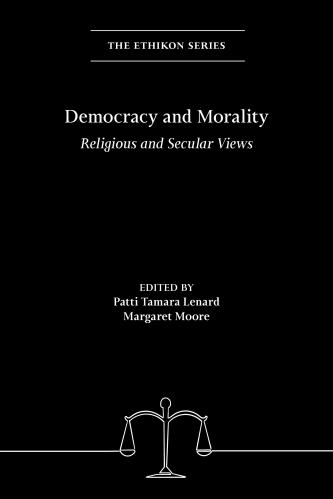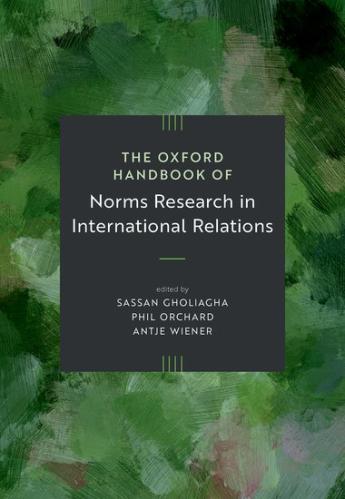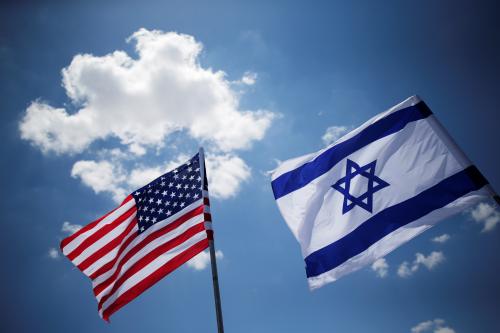On January 7, the Israeli government published a “black list” of groups whose members will be denied entry to the country. The Israeli government has linked these organizations to the Boycott, Divestment and Sanctions (BDS) movement and banning their entry was part of a concerted effort by the Israeli government to counter BDS, viewed by Israeli leaders as a serious diplomatic threat.
BDS is a loose amalgam of groups and individuals with varying political aims, who call for economic and cultural pressure on Israel in solidarity with the Palestinians, a call started by Palestinians activists. For some BDS supporters, the objective is merely to voice their opposition to Israel or to Israeli policy and military rule—occupation—of Palestinian people. For others, however, BDS is meant as a concrete strategy to achieve political goals: either an end to the occupation of Palestinians in the West Bank and the achievement of a two-state solution, or, conversely, the dissolution of Israel altogether and its replacement with a different state that includes the West Bank and Gaza Strip.
For those BDS supporters aiming for a political outcome, the theory is that exerting pressure on Israel and on Israelis will make the status quo more costly to them, eventually forcing Israelis to opt for a different reality—either withdrawing from the West Bank or dissolving their own state, depending on the differing aims of the boycotters. The inspiration for the strategy and name comes from the international sanctions on South Africa that helped catalyze the end of Apartheid.
The premise of the strategy is twofold, therefore: that international pressure will exert a dramatic toll on Israel and on Israeli citizens, and that Israelis will then see and opt for a political path out of this pressure.
There is much to debate on BDS—and much ink has already been spilled—including on its choice of one single target in the world today, Israel, and on the diametrically conflicting aims of some of its promoters: either supporting an Israel at peace with a sovereign Palestinian neighbor, or a rejection of Israel outright as an illegitimate entity that should be replaced in its entirety.
Different tactics naturally flow from these conflicting aims. The European Union, which has not endorsed BDS and has robust and open ties with Israel, has called for labeling products manufactured in Israeli settlements in the West Bank to allow consumers to specifically avoid these products. The E.U. signaled to Israelis two things at once: steadfast opposition to settlements, while rejecting the notion that the State of Israel was itself somehow illegitimate, as was the South African Apartheid regime in many eyes. In the Horizon 2020 scientific cooperation project, for example, the E.U. demanded that settlements be excluded even while offering broad and generous support for Israeli science and academe (among many other countries). With such a proposition, even an Israeli government led by Benjamin Netanyahu agreed to exclude settlements from the program, though E.U. was in effect trying to re-emphasize the Green Line that separates Israel from the West Bank, a boundary the Netanyahu governments, among others, have strived to blur.
Unlike the E.U., the BDS movement promotes boycotts of made-in-Israel products across the board, boycotts of Israeli artists and academics, and even lobbying for official sanctions on the State of Israel by foreign governments and international bodies. This raises the important question of what signal would be sent to the average Israeli, ultimately the key player in the BDS movement’s own “theory of the case.” If Israeli voters are convinced, as many of them are, that BDS aims to eradicate their state rather than to end the occupation, they are hardly likely to oblige.
Moreover, for a wholesale boycott of Israel to push Israeli citizens to make different political choices, it would have to have a dramatic economic impact. Would boycotts actually work? Would the Israeli public actually feel the economic pain?
BDS and the threat to Israeli exporters
Israel suffered decades of Arab boycott, starting at its birth in 1948. In a primary boycott, Arab states didn’t trade with Israel, making it an economic island. This raised the costs of trade considerably, making the country reliant on less secure supplies of basic commodities and energy resources. In a secondary boycott, Arab and other states threatened sanctions against firms that traded with Israel, dramatically limiting the number of companies willing to trade with the then-poor state. Common consumer goods of international brands—Pepsi, Toyota, and many others—could not be readily found in Israel, and, more important by far, Israeli industry could not rely on the inputs of a wide range of raw materials and industrial products from third parties who were fearful of the secondary boycott.
The primary boycott by Arab countries continues to some large degree (with the notable exceptions of Egypt, Jordan and the Palestinian Authority, which have official relations with Israel), but the far more damaging secondary boycott largely dissipated after the signing of the Oslo Accords in 1993. Israeli roads were suddenly flooded by major Japanese car brands, Pepsi was sold, and Israeli industry was unshackled. This helped boost the Israeli economy in subsequent years.
The legacy of the Arab boycott also left the Israeli economy adept at dealing with such boycotts. Some Israeli firms are well versed in using third-country subsidiaries to bypass boycotts, where they still exist (such as in much of the Muslim world.) Much of the Israeli economy naturally grew to take advantage of opportunities that are less sensitive to boycotts.
Today, the Israeli economy itself is far less susceptible to boycotts. A look at international trade data suggests that Israeli exports have evolved into being more unique and of higher quality, which implies that Israeli products cannot be substituted that easily by consumers. This means that successfully boycotting Israeli exports would be much harder today.
For one, as Figure 1 shows, Israel has been exporting more and more differentiated goods as opposed to homogenous goods, according to the categorization put together by the University of California San Diego’s James Rauch. The latter are goods that are easily substitutable (for most consumers, an orange is generally an orange, regardless of where it was grown), whereas the former term refers to goods that are traded in more narrow markets, and therefore are less prone to competition (a specialized computer chip, for example). Our analysis suggests that by 2015, about 50 percent of the value of Israeli exports were differentiated goods, an increase of about 15 percentage points since 1985. The trend in the data is clear: as the Israeli economy grew, the proportion of its exports that are differentiated goods grew as well.
In fact, the export basket of Israel has consistently moved towards high-technology goods, including semiconductors and other computer parts, as well as advanced machinery, pharmaceuticals and other products that are not easily replaceable. Banning Israeli goods would affect consumers in countries that currently import those goods, and it would be too complicated even for activists of the boycott movement themselves. View a video of a BDS rally, and there’s a fair chance the footage was taken on a device that utilizes Israeli technology: The boycott is broken before it begins.
The picture looked very different when the international community sanctioned the South African economy during the last decade of the Apartheid era: According to our analysis, the kind of goods exported by South Africa in the mid-1980s to mid-1990s were highly substitutable, unlike Israel’s today: more than 60 percent of South Africa’s export basket consisted of homogenous goods, such as minerals, metals, and agricultural products. At the time, imposing an import ban on South African goods would not create a large impact on the global consumer.
Another measure that suggests the low substitutability of Israeli exports is the quality of its goods. Using data on export quality, Figure 2 shows that over the past 30 years Israel has become increasingly an exporter of high quality goods (relative to other countries’ exports). In the early 1980s over 90 percent of the value of Israeli exports were below the median world quality, with barely 5 percent of its exports being above median world quality. Yet, as of 2015, almost 40 percent of Israeli exports are above median world quality with less than 10 percent in the bottom quartile. If high quality goods are harder to replace, this would again suggest that Israeli exports are, today, less prone to boycotts and import bans. By contrast, more than 70 percent of South African exports in 1990 were below median world quality, with more than half of such figure being below the 25th percentile.
Moreover, according to data from the World Bank’s World Integrated Trade Solution website, about 40 percent of Israeli exports can be classified as intermediate goods, meaning they are used in the production process of other goods produced elsewhere. This implies that Israel is quite integrated in global value chains, so that firms all over the world—and not only regular people—are importing these goods. Intermediate goods are also harder to target in boycotts, since many of them are not visible to the average consumer, and are “hidden” within the production process of a product of another country.
Lastly, beyond exports, Israel (together with South Korea) leads the world in research and development (R&D) investment as a share of GDP (standing at about 4.5 percent). Israel is now home to major R&D centers—and in many cases even for production facilities—of some of the largest and most successful multinational corporations. This in turn contributes to the quality and differentiation of Israeli products and makes it even more difficult for firms to bypass Israeli industry and technology.
Economically, therefore a consumer boycott seems less of a credible threat than either BDS, the Israeli government, or many in the United States seem to believe: it would be very hard to enforce a ban on commercial Israeli goods, from computer hardware and software, medical devices, pharmaceuticals, to advanced machinery in heavy industry. In other words, a significant portion of Israeli exports are in high demand—and this trend seems likely to continue—and most consumers (either firms or people) would be unable to replace them or unwilling to stop consuming them altogether.
***
Of course, none of this implies that a boycott is no threat at all to Israel. Even though most products Israel exports are unlikely to be boycotted effectively, there is still a portion for which boycotts could work in theory: tourism, some agricultural products, non-complex manufacturing, as well as perhaps some services exports. Cultural and academic boycotts too could have an effect (though much of it disproportionately targets Israelis who oppose their government’s policies). Still, given the basic structure of the Israeli trade, the threat to the Israeli economy is a far cry from that often described by both supporters and detractors of BDS. More than anything, this is a cultural, psychological battle, not an economic one.
The data suggests that, economically, anything short of official sanctions by important economic partners such as the United States or European Union would be unlikely to produce anything near the kind of economic pressure BDS supporters envision. Moreover, if such sanctions were enacted along BDS (as opposed to E.U.) lines, it would likely strengthen Israeli suspicion of the goals and motivations of BDS, making them—the key of BDS’s strategy—less willing to cooperate.
The Israeli government is thus doing itself a disservice by paying so much attention to this movement, both through its own deeds and words, as well as through lobbying with other countries to enact anti-BDS legislation. It is only providing more fuel to a fire that is small to begin with.
The sad irony is that campaigns by both well-meaning and not-well-meaning individuals around the world may make it harder, not easier to achieve a very worthy goal: Palestinian independence. Let us be clear: For the sake of both Israelis and Palestinians, Israeli rule over Palestinian lives in the West Bank should indeed end. BDS, whatever the motivations of its various activists, is not the way to promote that goal.
The Brookings Institution is committed to quality, independence, and impact.
We are supported by a diverse array of funders. In line with our values and policies, each Brookings publication represents the sole views of its author(s).












Commentary
How much does BDS threaten Israel’s economy?
January 26, 2018